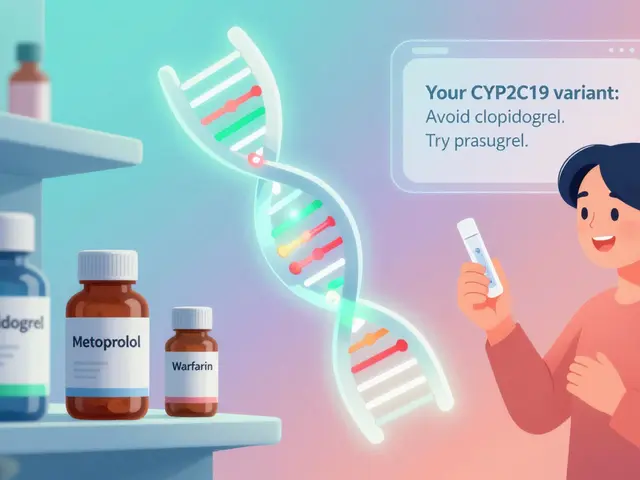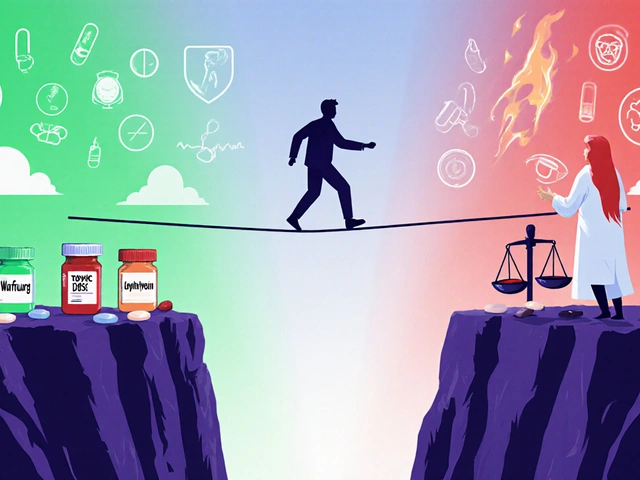Introduction: Understanding Tibolone and its Effects
Menopause is a natural biological process that every woman goes through, usually between the ages of 45 and 55. It marks the end of a woman's reproductive years and comes with various symptoms, including a decline in sexual desire. But fear not, there is a medication called Tibolone, which has been shown to improve libido during menopause. In this article, we will discuss how Tibolone can help improve your sex life during this challenging time.
The Science Behind Menopause and Decreased Libido
During menopause, the ovaries gradually decrease the production of estrogen and progesterone, the hormones responsible for regulating the menstrual cycle. This reduction in hormone levels can lead to various symptoms, including hot flashes, mood swings, sleep disturbances, and vaginal dryness. One of the most common and distressing symptoms is the decline in sexual desire or libido. The decrease in estrogen levels can cause a reduction in blood flow to the genital area, leading to a decrease in arousal and sensitivity. Additionally, the emotional and physical changes during menopause can contribute to a decreased interest in sex.
What is Tibolone?
Tibolone is a synthetic steroid hormone that mimics the actions of estrogen, progesterone, and testosterone in the body. It is used to treat the symptoms of menopause, as well as osteoporosis in postmenopausal women. The unique thing about Tibolone is that it has tissue-specific effects, which means it acts differently in various parts of the body. In the brain and vaginal tissue, it acts like estrogen, helping to alleviate menopausal symptoms and improve sexual function.
How Tibolone Improves Libido During Menopause
Tibolone has been shown to improve libido in menopausal women by increasing the levels of estrogen and testosterone in the body. Estrogen helps to maintain the elasticity and lubrication of the vaginal tissues, making sex more comfortable and enjoyable. Testosterone, on the other hand, plays a significant role in sexual desire and arousal. By increasing the levels of these hormones, Tibolone helps to improve sexual function and overall well-being during menopause.
Medical Studies Supporting the Use of Tibolone for Libido
Several clinical studies have been conducted to evaluate the effectiveness of Tibolone in improving libido during menopause. In a randomized, double-blind, placebo-controlled study, postmenopausal women who received Tibolone reported significant improvements in their sexual function, including desire, arousal, and satisfaction. Another study found that postmenopausal women who were treated with Tibolone experienced a significant increase in their sexual desire compared to those who received a placebo.
Possible Side Effects of Tibolone
As with any medication, there are potential side effects associated with the use of Tibolone. Some common side effects include headache, dizziness, abdominal pain, breast tenderness, and vaginal bleeding or spotting. In rare cases, Tibolone may increase the risk of developing blood clots, stroke, or breast cancer. It's essential to discuss these risks with your healthcare provider before starting treatment with Tibolone.
Alternative Treatments for Menopause-Related Sexual Dysfunction
While Tibolone has been shown to improve libido in menopausal women, it may not be suitable for everyone. If you are unable to take Tibolone or prefer alternative treatments, there are other options available. Hormone replacement therapy (HRT) can help to alleviate menopausal symptoms and improve sexual function. Non-hormonal treatments, such as vaginal lubricants and moisturizers, can help to reduce vaginal dryness and discomfort during sex. Additionally, regular exercise, a healthy diet, and stress management techniques can improve overall well-being and sexual function during menopause.
Discussing Your Sexual Health with Your Healthcare Provider
It's crucial to have open and honest conversations with your healthcare provider about your sexual health during menopause. They can help determine the cause of your decreased libido and recommend appropriate treatment options. Don't hesitate to discuss your concerns and ask questions about the benefits and risks of using Tibolone or any other treatment options.
Conclusion: Can Tibolone Improve Libido During Menopause?
In conclusion, Tibolone has been shown to improve libido in menopausal women by increasing the levels of estrogen and testosterone in the body. It is a promising treatment option for those struggling with sexual dysfunction during menopause. However, it's essential to discuss the potential benefits and risks with your healthcare provider before starting treatment. Additionally, consider alternative treatments and lifestyle changes that can help improve your overall well-being and sexual function during this time.







Jesse Groenendaal
May 21, 2023 AT 05:02